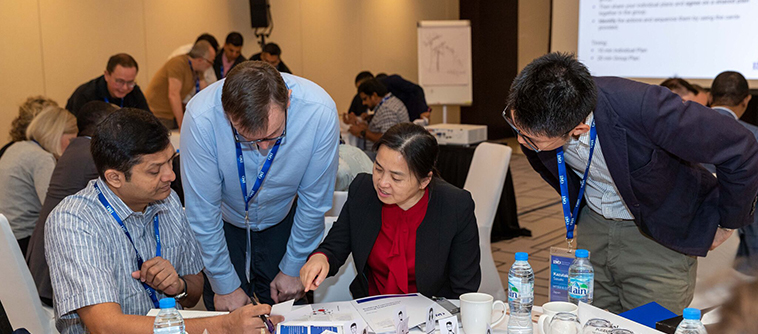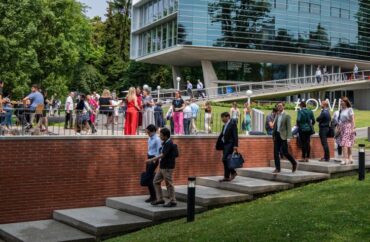
That’s it from day three at Orchestrating Winning Performance in Dubai. Today we’ve heard from experts on topics as diverse as smart cities, overcoming biases at work, how to manage change and a session that asked – does DNA determine your leadership skills?
Here’s a closer look at some of today’s key moments.
Dubai wants to be the world’s smartest, happiest city
Central to Dubai’s mind-boggling growth over the last 30 years is its development and implementation of digital technologies, an industry at which it now finds itself at the cutting edge.
Now, the city has ambitions to go even further, said Wesam Lootah, CEO of Smart Dubai Government during a session at OWP.
Lootah described Smart Dubai’s ambition as being able to provide a ‘digital government in a box’ – one system that connects citizens to all the services they need to survive and thrive in their personal and professional lives, from housing and healthcare to transportation and educational services.
Lootah also said the Dubai government will issue its last paper transaction by 2021, a move that would save AED900m, 1 billion pieces of paper, 125 million work hours and 130,000 trees.
The importance of lifelong learning
Lifelong learning, as opposed to the standard model of gaining an education before finding out what value you can create as part of the workforce, is a topic that has been raised a few times at OWP already.
In one of yesterday’s sessions, IMD Professor Amit Joshi said that to keep up with new technologies like Artificial Intelligence we should move away from teaching the ‘three Rs’ (reading, writing and arithmetic). Instead, we should shift to the ‘four Cs’ of critical thinking, communication, collaboration and creativity – skills that AI will find harder to replicate.
Today, IMD President and Program Co-director Jean-François Manzoni discussed in much greater detail the need for lifelong development, but also the factors that stop so many of us from doing it.
Without visionary leadership, said Professor Manzoni, it’s getting harder to achieve great things. This is getting harder and harder to do, he added, because we live in a world of constant disruption. Increasingly, we have competition coming out of nowhere that is not just cheaper than you, but better and cheaper than you – something known as ‘big bang disruption’.
In this fast-changing and challenging landscape, executives must keep improving – just to keep up. “It’s not just that you need to learn, you need to do it faster,” he said.
Changing behaviour is hard, but it is doable, added the professor, and there is research that suggests both nature and nurture play a role.
“The point is you can get better if you work hard enough at something. And you can get better,” he said.
Key to this is to maintain a “growth mindset” and believing you have the ability to change, he added.
Does your DNA dictate your leadership style?
Executives must recognize and embrace their unique personality traits to successfully lead a team, said Ina Toegel, Professor of Leadership and Organizational Change at IMD.
Before asking yourself who you are and who you want to be as a leader, every manager needs to understand how their natural personality traits influence the way they approach leadership, she added. Being aware of our own strengths and weaknesses – and how we label our different emotions – is critical.
So what if you want to change your personality? Can the right approach, effort and tenacity lead to real personality change, or are leaders stuck with rigid and undesirable traits that hold us back from achieving our goals?
Toegel says making real and lasting changes can be exceedingly difficult: our personalities are relatively fixed and stable throughout life from a young age. However, leaders can change the behaviour patterns, habits, and beliefs that lurk under the surface of the main personality traits of extraversion, agreeableness, openness, conscientiousness, and emotionality.
It’s also important for executives to build the right environment to allow teams to thrive.
Toegel shared the example of Google. In 2012, the tech giant embarked on a huge company-wide initiative – Project Aristotle – to study hundreds of its teams and figure out why some failed while others succeeded.
Ultimately, researchers concluded that teams work well when there is interdependence; when there is space for different personalities and an environment where it is acceptable to fail.
